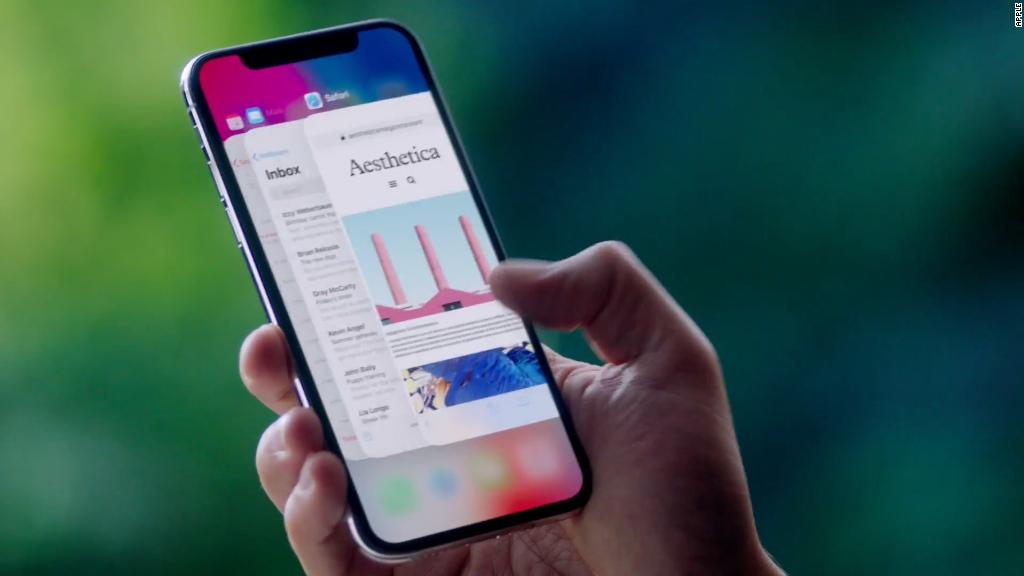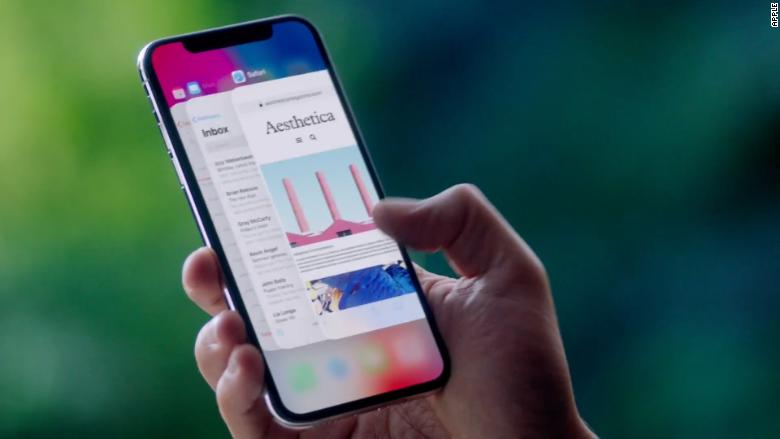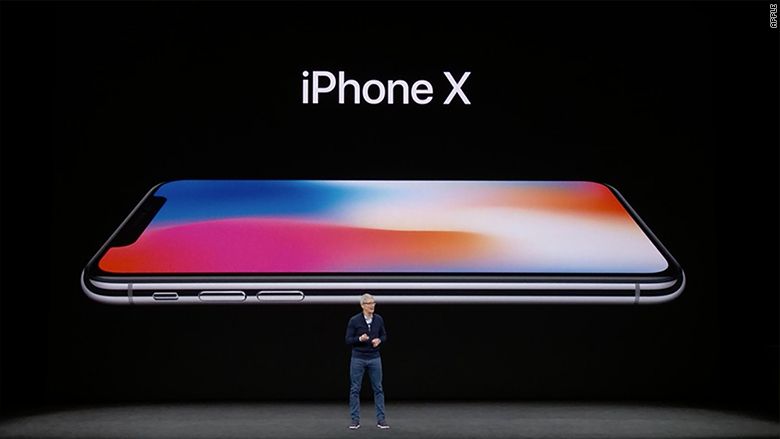
Wall Street is anxiously trying to figure out the X factor ahead of Apple's earnings report this week.
Apple (AAPL) stock has slipped following analyst notes and news reports that raised concerns about demand for the pricey iPhone X.
The company is rumored to be cutting production for the $999 smartphone by half for the first three months of 2018, according to reports this week from Japanese publication Nikkei and The Wall Street Journal.
The stock dipped about 2% on Monday and was down another 1% in midday trading Tuesday. The stock has fallen more than 5% over the last week.
Related: A step-by-step guide to backing up your iPhone
Apple is scheduled to report earnings on Thursday. The company is expected to post record sales and profits for the final quarter of 2017, fueled by initial demand for the iPhone X as well as the iPhone 8 and 8 Plus, which went on sale in the fall.
But all eyes will be on the guidance Apple provides for sales in the upcoming quarter. There is growing concern among analysts that 2018 will get off to a weaker than expected start as demand for the new phones fizzles out.

"Concerns about iPhone X sales have been well documented," Walter Piecyk, an analyst with BTIG, wrote in a research note Friday with the ominous title "How Bad Will Apple's Guidance Be."
The issue, he wrote, is whether Apple "can hit or even come close" to Wall Street's sales estimates this year if the iPhone X lags.
Apple declined a request for comment.
The iPhone X, named for the 10th anniversary of the smartphone, features a full bleed screen, eliminates the home button, and offers the option to unlock the device by scanning your face.
Apple had gone several years without making a major change to the iPhone's look and feel. Investors had hoped that the vastly redesigned device would help drive a "super cycle" of customers who upgrade their smartphones.
Now, analysts are pouring cold water on this theory.
"We have not been convinced that Apple would see a 'super cycle' in FY-18," Sherri Scribner, an analyst with Deutsche Bank, wrote Monday. "The phones were too expensive to drive massive adoption, consumers are keeping their phones longer because of their high cost ... and the iPhone X features weren't enough to drive non-early adopters to buy new phones."
Related: iPhone X first impressions: The highs, lows and quirks
The iPhone X was a risky bet for Apple. It was Apple's most expensive iPhone to date and didn't go on sale until more than a month after the more affordable 8 and 8 Plus devices.
Apple itself hinted at some uncertainty with this approach.
"This is the first time we've ever been in the position that we've had three new iPhones at once like this at the top end of the line. And it's the first time we've had a staggered launch," Tim Cook, Apple's CEO, said in November. "And so we're going to see what happens."

Apple doesn't break out sales for specific models. Instead, investors will be looking at total iPhone units sold and the average selling price. The latter could offer a clue to how many consumers scooped up the $999 phone.
Even if Apple's sales end up lower than expected, investors may get a pleasant surprise from the tax bill signed late last year. The new law makes it cheaper for Apple to bring back the more than $250 billion in cash it holds overseas.
Apple said this month it would use some of that money to create 20,000 jobs and invest $30 billion in U.S. facilities over the next five years. But the company is also expected to use much of its cash pile to accelerate its stock buybacks and dividends for shareholders.
"Apple usually waits until April to update the capital return program but could accelerate the discussion," Steven Milunovich, an analyst with UBS, wrote in a note this week.

